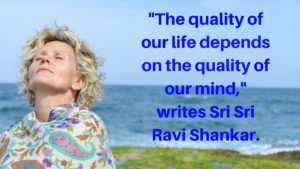Why Meditate?
Meditation has been used for centuries in many ancient religions and indigenous cultures. In our fast paced western society it’s been overlooked and priority has been given to achieving a high standard of knowledge and acquiring ‘stuff’. But scientific research has shown that people who practice self care through getting out of their heads, connecting with others, accessing the loving unity of all that is, feeling happy rather than driven, living in love instead of fear, and experiencing that they are something far more interesting than the ‘meat suit’ (which is the observer of the meat suit) have a longer, healthier and far more peaceful life.
has been used for centuries in many ancient religions and indigenous cultures. In our fast paced western society it’s been overlooked and priority has been given to achieving a high standard of knowledge and acquiring ‘stuff’. But scientific research has shown that people who practice self care through getting out of their heads, connecting with others, accessing the loving unity of all that is, feeling happy rather than driven, living in love instead of fear, and experiencing that they are something far more interesting than the ‘meat suit’ (which is the observer of the meat suit) have a longer, healthier and far more peaceful life.
Meditating has HUGE benefits so the question is, why isn’t this taught in schools and why isn’t it a part of everybody’s life?.
It Boosts our HEALTH
1 – Increases immune function.
2 – Decreases Pain.
3 – Decreases Inflammation at the Cellular Level.
It Boosts our HAPPINESS
4 – Increases Positive Emotion.
5 – Decreases Depression.
6 – Decreases Anxiety.
7 – Decreases Stress.
It Boosts our SOCIAL LIFE
We have a lot more compassion and connection when we see that we’re a spirit having a human experience instead of a human having a spiritual experience. Meditation really does give us the wonderful experience of knowing that we’re all just vibrating energy and all connected in the quantum field. We’re a lot more forgiving of ourselves and less judgemental of others when we slow down and see past the mask of fear that so many of us have, to the pure love that we really are. It makes us more compassionate which creates more happiness in our lives according to research. Meditation is wonderful to do alone – accepting and loving ourselves is the first and totally delicious gateway to some beautiful connections with others. Doing meditation in a group can be incredibly powerfulI. I’ll never forget guiding a meditation for about seventy U3A people (an education service for retired people) in Bermagui and when they opened their eyes and looked at me I was awe struck by their magnificent loving energy!
8 – Increases social connection & emotional intelligence.
9 – Makes us more compassionate.
10 – Makes us feel less lonely because we understand that we’re all connected.
It Boosts our SELF CONTROL
11 – Improves our ability to regulate our emotions.
12 – Improves introspection because we experience the loving unity of all that is, instead of just seeing ourselves as the ‘meat suit’. Jesus said ‘Be in the world but not of it’.
It Changes our BRAIN
13 – Increases grey matter and rewires our brains. Cell’s that fire together wire together. Old neurones responsible for negative beliefs die off and are replaced with new neurones responsible for happiness. We literally break the habit of being ourselves.
14 – Increases volume in areas related to emotion regulation, positive emotions & self-control.
15 – Increases cortical thickness in areas related to paying attention.
It Improves our PRODUCTIVITY (yup, by doing nothing)
16 – Increases our focus & attention.
17 – Improves our ability to multitask.
18 – Improves our memory.
19 – Improves our ability to be creative & think outside the box.
It makes us WISE(R)
20 – It gives us perspective: By observing our minds, we realise we don’t have to be a slave to it. We realise it throws tantrums, gets grumpy, jealous, happy and sad but that it doesn’t have to run us. Meditation is quite simply mental hygiene: clear out the junk, tune our talents, and we get in touch with ourselves. Think about it, we shower every day and clean our bodies, but how much time do we spend on our minds? As a consequence, we feel more clear and see things with greater perspective.
“The quality of our life depends on the quality of our mind,” writes Sri Sri Ravi Shankar.
We can’t control what happens on the outside but we do have a say over the quality of our mind. No matter what’s going on, if your mind is ok, everything is ok. Right now.
It Keeps us REAL.
Once we get to know our minds, we start to own our stuff and become more truthful, maybe even humble. We understand that the stories and the drama in our theatre production our mind puts us through and we gain some perspective on them. Our ‘need to be right’ decreases. We understand that it’s just our mind-drama and we become more compassionate towards others.
Myths about Meditation
Having an empty mind—nope, in fact, when you start meditating, you’ll find your mind’ll be very active, or you’ll probably fall asleep.
Sitting in lotus position—nope, you can sit in any way you like – on the floor or a chair etc. (just don’t lie down, you’ll fall asleep)
Sitting for an hour a day—nope, anywhere from a few seconds to all day long. Getting out of your own way is always beneficial and is where your greatest insights come from.
Chanting in a language I don’t understand—nope, not unless that floats your boat.
Buddhist, Hindu or religious—nope, not unless you make it so.
Weird—what’s so weird about sitting and breathing? All sorts of people do it these days. It’s great for performance enhancement in sports, relaxing to help the body heal, and business people use it for stress management.
Wearing robes—what?
“I can’t meditate” because…
I can’t clear my mind—no worries, while you’re sitting there you’ll experience the noisy chaos of a wound up mind that’s unwinding: tons of thoughts, feelings and emotions. The most important thing to notice is how you feel afterwards and throughout the rest of the day.
I can’t sit still—that’s ok, just sit comfortably, fidget if you need to.
I get anxious—that’s also normal, all the junk’s coming up, always come back to the breath, and doing the lead up exercises e.g. Huh! + shaking + the breathing exercises + B.E.S.T. will help get anxiety out of the body before meditating.
I hate sitting still—that’s fine, then go for a walk without your earphones, phone etc; or as mentioned before, do the lead up exercises…give yourself time to just “be” without constantly “doing” something.
I tried and I hated it—there’s not just one kind of meditation, there’s a whole menu out there, look for the shoe that fits: mindfulness, Transcendental, compassion, mantra, Vipassana, Art of Living breathing practices, yoga nidra, yoga, insight, loving-kindness, tai chi etc…A friend of mine gets out of her head whilst walking, and another cycling.
I don’t have time – if you have time to read an article about meditation all the way through, you have time to meditate. Think of all those minutes you waste every day on the internet or face book, you can definitely fit in 20 minutes here or there to give your life a boost!
Gandhi is quoted as saying “I’m so busy today, that… I’m going to meditate 2 hours instead of 1.”
And just a bit more info from medical doctors –
Meditation benefits people with or without acute medical illness or stress. People who meditate regularly have been shown to feel less anxiety and depression. They also report that they experience more enjoyment and appreciation of life and that their relationships with others are improved. Meditation produces a state of deep relaxation and a sense of balance or equanimity.
According to Michael J. Baime, “Meditation cultivates an emotional stability that allows the meditator to experience intense emotions fully while simultaneously maintaining perspective on them.”
Out of this experience of emotional stability, one may gain greater insight and understanding about one’s thoughts, feelings, and actions. This insight in turn offers the possibility to feel more confident and in control of life. Meditation facilitates a greater sense of calmness, empathy, and acceptance of self and others.
Meditation can be used with other forms of medical treatment and is an important complementary therapy for both the treatment and prevention of many stress-related conditions. Regular meditation can reduce the number of symptoms experienced by patients with a wide range of illnesses and disorders. Based upon clinical evidence as well as theoretical understanding, meditation is considered to be one of the better therapies for panic disorder, generalised anxiety disorder, substance dependence and abuse, ulcers, colitis, chronic pain, psoriasis, and dysthymic disorder. It is considered to be a valuable adjunctive therapy for moderate hypertension (high blood pressure), prevention of cardiac arrest (heart attack), prevention of atherosclerosis (hardening of arteries), arthritis (including fibromyalgia), cancer, insomnia, migraine, and prevention of stroke. Meditation may also be a valuable complementary therapy for allergies and asthma because of the role stress plays in these conditions. Meditative practices have been reported to improve function or reduce symptoms in patients with some neurological disorders as well. These include people with Parkinson’s disease, people who experience fatigue with multiple sclerosis, and people with epilepsy who are resistant to standard treatment.
Overall, a 1995 report to the National Institutes of Health on alternative medicine concluded that, “More than 30 years of research, as well as the experience of a large and growing number of individuals and health care providers, suggests that meditation and similar forms of relaxation can lead to better health, higher quality of life, and lowered health care costs …”
So as we can see. It’s insanity NOT to at least stop and practice some sort of stilling the mind.
